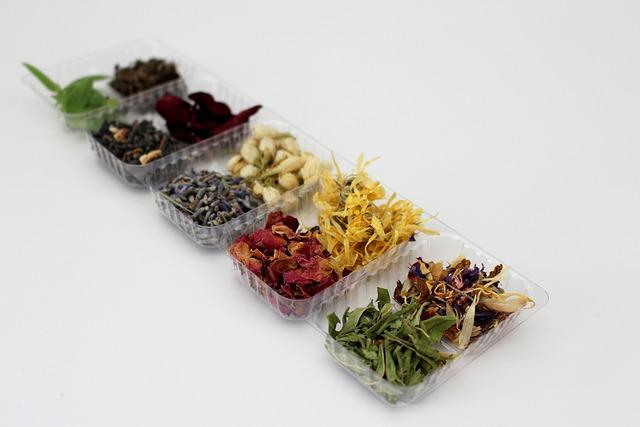Is Eating Soap Bad for You? The Clean Health Risks Revealed
Are you among the many who have been tempted to take a bite into that delicious looking bar of soap sitting in your bathroom? Before you indulge in this unconventional snack, let’s explore the potential health risks of consuming soap. In this article, we will unravel the truth behind the age-old question: “Is eating soap bad for you?” Clear up any confusion you may have about the cleanliness dilemma and discover the surprising facts that may change your perspective on soap consumption.
Contents
Is Eating Soap Harmful for Your Health?
Eating soap may not seem like a common occurrence, but accidents can happen, especially with young children or individuals with certain medical conditions. While a small amount of soap may not be immediately harmful, repeated consumption can lead to various health risks. Here are some potential dangers of eating soap:
- Chemical Irritation: The ingredients in soap, such as fragrances, dyes, and preservatives, can irritate the digestive tract and cause discomfort or inflammation.
- Toxicity: Some soaps contain chemicals that are toxic if ingested in large amounts, leading to symptoms like nausea, vomiting, and diarrhea.
- Nutrient Absorption: Consuming soap can interfere with the body’s ability to absorb nutrients from food, potentially leading to deficiencies over time.

Common Ingredients in Soap and Their Effects
When it comes to the ingredients found in soap, there are several common components that play a key role in cleansing and nourishing our skin. Understanding the effects of these ingredients can help us make informed decisions about the products we use daily. Here are some of the most :
- Glycerin: This natural humectant helps to attract moisture to the skin, keeping it hydrated and supple.
- Coco-glucoside: A gentle surfactant derived from coconuts, this ingredient helps to cleanse the skin without stripping it of its natural oils.
- Shea butter: Known for its moisturizing properties, shea butter helps to nourish and soften the skin, making it a popular choice in soap formulations.
While these ingredients are generally safe when used externally on the skin, ingesting soap can have harmful effects on our health. Soap is not meant to be consumed, and ingesting it can lead to stomach upset, nausea, and even poisoning. It’s important to keep soap out of reach of children and pets to prevent accidental ingestion and potential health risks.

What to Do If You Accidentally Eat Soap
If you find yourself accidentally eating soap, there’s no need to panic. While it’s definitely not a recommended snack, the occasional ingestion of small amounts of soap is unlikely to cause serious harm. Here are a few steps you can take if you find yourself in this sudsy situation:
- Stay Calm: As tempting as it may be to freak out, remember that most soaps are made with non-toxic ingredients. Focus on staying calm and assessing the situation.
- Drink Water: Drinking a glass of water can help dilute any soap that may be lingering in your system. This can also help prevent any potential digestive discomfort.
- Monitor Symptoms: While rare, some people may experience mild stomach upset or diarrhea after ingesting soap. If you start to feel unwell, it’s always a good idea to contact a healthcare professional for further guidance.
Remember, the occasional accidental ingestion of soap is not ideal, but it’s unlikely to cause serious harm. Be mindful of what you’re putting in your mouth, and try to keep soap out of the menu in the future.
Alternative Ways to Keep Your Hands Clean
In addition to traditional handwashing with soap and water, there are and germ-free. One option is using hand sanitizer with at least 60% alcohol content. This can be especially convenient when you’re on the go and don’t have access to a sink.
Another alternative is using disinfectant wipes to clean your hands. These wipes are pre-moistened with a sanitizing solution that kills bacteria and viruses on contact. They are easy to carry around in your bag or pocket for quick clean-ups throughout the day.
Additionally, incorporating natural hand sanitizing options like essential oils can provide added benefits. Tea tree oil and lavender oil are known for their antibacterial properties and can be mixed with a carrier oil like coconut oil for a homemade hand sanitizer. These alternatives can be effective in keeping your hands clean and free of harmful germs.
| Hand Cleaning Alternative | Benefits |
|---|---|
| Essential oils hand sanitizer | Antibacterial properties |
| Disinfectant wipes | Convenience for on-the-go use |

Consulting a Doctor for Concerns about Ingesting Soap
Eating soap might sound like a harmless dare or a quirky habit, but the truth is, it can have serious health consequences. If you have concerns about ingesting soap, it is important to consult a doctor as soon as possible to address any potential risks. Here are some reasons why you should seek professional medical advice:
- Toxicity: Many soaps contain chemicals that can be toxic when consumed in large amounts.
- Gastrointestinal Issues: Ingesting soap can lead to stomach upset, nausea, vomiting, and diarrhea.
- Choking Hazard: Eating soap can pose a choking risk, especially for young children or individuals with swallowing difficulties.
Remember, your health is important, and seeking medical guidance is always the best course of action when faced with concerns about ingesting substances not intended for consumption.

Conclusion: Understanding the Risks of Ingesting Soap
After exploring the potential risks associated with ingesting soap, it is clear that consuming soap is not recommended for several reasons. While soap is generally safe for external use, internal ingestion can lead to various health complications and should be avoided. Some of the key takeaways from this discussion include:
- Chemical Exposure: Soap contains chemicals that are not meant to be consumed, such as sodium lauryl sulfate, which can be harmful to the digestive system.
- Gastrointestinal Issues: Ingesting soap can cause gastrointestinal distress, including nausea, vomiting, and diarrhea, due to the harsh ingredients present in most soaps.
- Toxicity: Certain ingredients in soap, such as fragrances and preservatives, can be toxic when ingested in large quantities, leading to serious health risks.
Overall, while accidentally ingesting a small amount of soap is unlikely to cause significant harm, it is important to be cautious and avoid consuming soap intentionally. If you experience any adverse effects from ingesting soap, seek medical attention immediately.
In Retrospect
So, the verdict is in: Yes, eating soap is bad for you. The chemicals found in most soaps can cause irritation, digestive issues, and even organ damage if ingested. While small amounts may not be harmful, it’s best to keep soap where it belongs – in your hands, not in your belly. Remember, when it comes to your health, it’s always better to be safe than sorry. Stick to using soap for washing up, and leave the eating to more traditional sources of nutrition. Stay clean, stay healthy, and always read the labels on your products. Your body will thank you in the long run!






